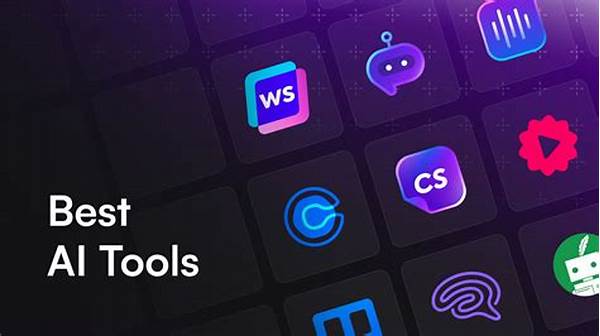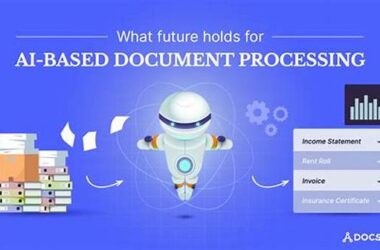AI Tools
Read More : How Ai Enhances Team Collaboration In Offices
AI tools have revolutionized the way we approach problem-solving, efficiency, and innovation in various sectors. From automating mundane tasks to providing insightful analytics, AI tools are reshaping industries and workforce dynamics. In a world driven by data and digital transformation, the adoption of AI tools is no longer optional but a crucial strategy for businesses eager to maintain a competitive edge. But, to truly harness the power of AI, understanding and leveraging these tools effectively is paramount.
Imagine streamlining operations, boosting productivity, and fostering creativity while reducing costs – all this is feasible with the integration of AI tools. For instance, consider a marketing firm spending countless hours on data analysis and campaign optimization. With AI tools, these processes can be automated, allowing human resources to focus on strategy development and creative ideation. The unique selling point of AI tools lies in their ability to enhance human capabilities as opposed to replacing them entirely.
Furthermore, the impact of AI tools stretches beyond business operations, playing a significant role in generating valuable insights from vast amounts of data. Whether it’s predicting consumer behavior, improving customer service, or enhancing supply chain efficiency, AI tools are at the forefront of innovation. While this brings attention to their potential, it also raises interest in how they can be tailored to fit specific organizational needs, sparking a desire for customization and optimal use.
The journey towards effective AI tool utilization is like embarking on a thrilling adventure. The desire to innovate is met with the action of implementing these tools, transforming ideas into reality. As businesses navigate the complexities of AI adoption, the promise of enhanced performance becomes an irresistible allure. However, there’s no one-size-fits-all answer, and this is where AI tools experts come into play, offering exclusive consultation services to tailor solutions perfectly aligned with each client’s goals.
Understanding AI Tools
As businesses continue to dive into the digital age, the importance of AI tools cannot be overstated. These tools have transcended from being luxurious options for tech-savvy companies to essential instruments for any business aiming to stay relevant in today’s fast-paced market. Their transformative potential is palpable across various domains, from healthcare with AI-driven diagnostics to retail with personalized shopping experiences.
The efficacy of AI tools is not just about cutting-edge technology; it’s about delivering measurable results. Recent statistics indicate that companies leveraging AI tools experience a productivity increase of up to 40%, demonstrating their value beyond theoretical discussions. Such tools offer invaluable insights that help streamline decision-making processes, boosting efficiency and improving outcomes.
Delving deeper into AI tools’ capabilities, one can find vast applications like natural language processing, machine learning, and predictive analytics. These features enable businesses to predict trends, understand customer needs, and offer more personal and timely solutions. As a result, AI tools not only support but significantly enhance customer relationships and business strategies, fostering growth and innovation.
Investing in AI tools also means accessing a wealth of data-driven insights that provide a comprehensive understanding of operational dynamics and consumer behavior. By analyzing patterns and trends, AI tools can identify opportunities and challenges in the market, paving the way for informed strategic decisions. This opens opportunities for tailored marketing efforts, better resource allocation, and even mitigating risks.
To make the most out of AI tools, businesses must embrace continuous learning and adaptation. This involves not only implementing these tools but also nurturing a culture that values data-driven decision-making. With the right mindset and strategy, AI tools empower organizations to thrive in a competitive environment, setting the stage for explosive growth and sustained success.
In the end, integrating AI tools is not simply an investment in technology; it’s an investment in the future. As we witness the vast potential of AI unfold, remaining abreast of technological advancements and leveraging their capabilities is essential. Only then can organizations capitalize on their benefits, optimize performance, and secure a robust position in their respective industries.
The Role of AI Tools in Modern Business
Exploring the Potential of AI Tools
AI tools have become pivotal in contemporary society, driving substantial transformations across industries. These tools are not merely technological advancements; they are redefining workflows, enhancing accuracy, and enabling new possibilities. As highlighted by research, AI tools are at the forefront of innovation, offering solutions that were once thought unattainable.
One cannot overstate the power of AI tools in industries such as healthcare, where they assist in diagnostics and patient care management. By employing machine learning algorithms, these tools can predict potential health risks, suggest treatments, and even assist in surgical procedures, thereby revolutionizing patient outcomes.
In the finance sector, AI tools are game-changers, providing rapid, accurate, and intelligent analysis. They help detect fraudulent activities, manage risks efficiently, and offer personalized financial advice. This highlights their importance in ensuring security, compliance, and maintaining customer trust.
As businesses become more customer-centric, the need for personalized experiences grows. AI tools play a critical role in achieving this by analyzing consumer data to offer tailored products and services. This is a potent strategy for gaining customer loyalty and expanding market reach.
Education, too, is not left behind in the AI revolution. AI tools assist educators in developing customized learning experiences, assessing student performance, and providing valuable feedback. This results in enhanced learning outcomes and prepares students for a technologically advanced future.
The versatility of AI tools also extends to logistics and supply chain management. By optimizing routes, managing inventory efficiently, and predicting demand, these tools ensure timely deliveries and satisfied customers. This streamlining of operations underscores their economic value and significant impact.
In conclusion, AI tools are indispensable in the modern business landscape. Their strategic implementation can lead to unprecedented growth, innovation, and sustainability. As industries continue to evolve, the role of AI tools will undoubtedly become even more critical, shaping the future of work and society itself.
Benefits of AI Tools in Various Fields
Conclusion
AI tools are a testament to innovation’s power in transforming society. By leveraging these tools, businesses not only improve efficiency but also unlock new frontiers of possibility. Whether through revolutionizing healthcare or enhancing customer experiences, AI tools pave the way for a future rich in potential and opportunity. Embracing these technologies is paramount for organizations aiming to achieve enduring success and a competitive edge in their respective industries.



